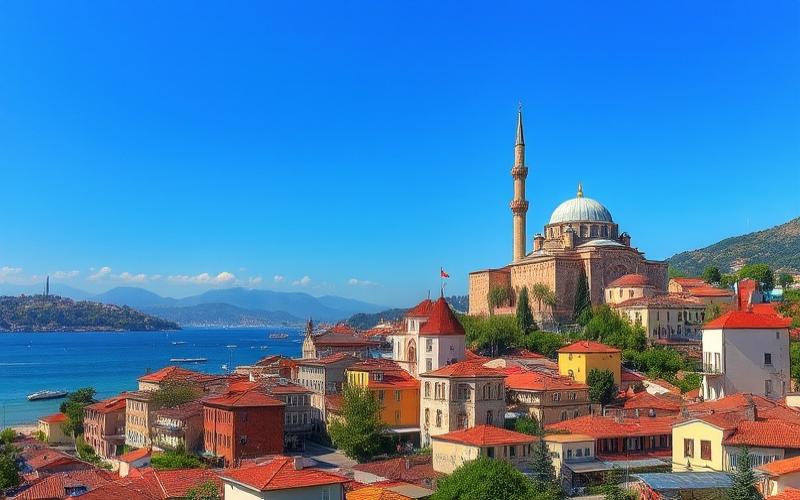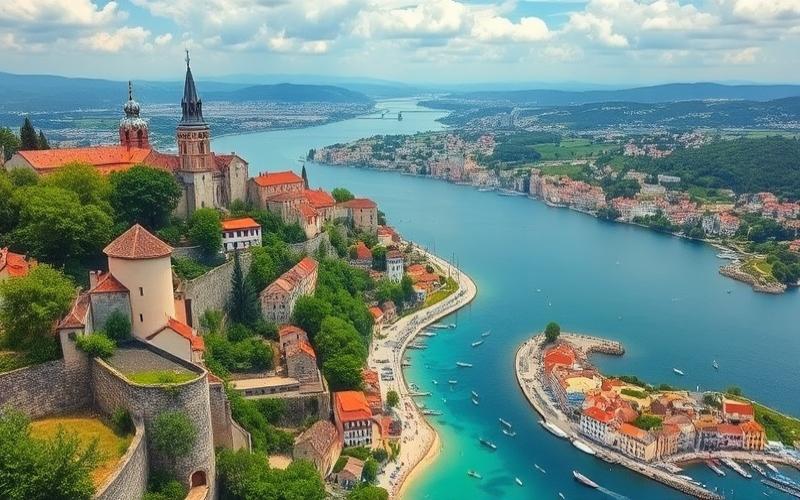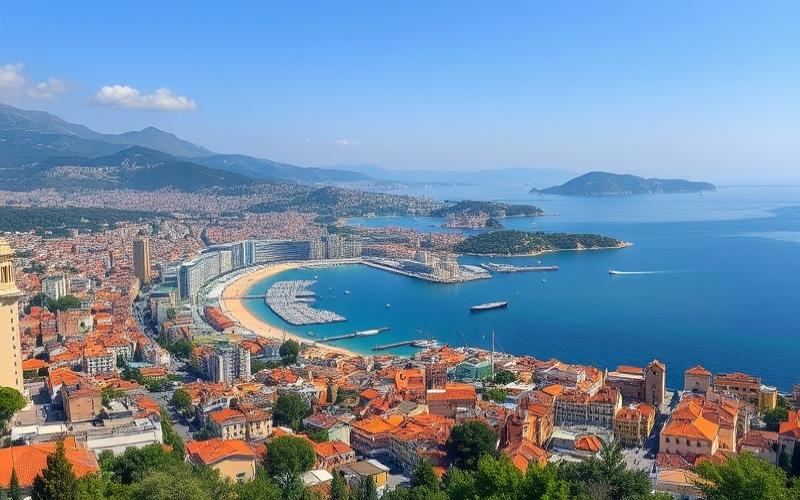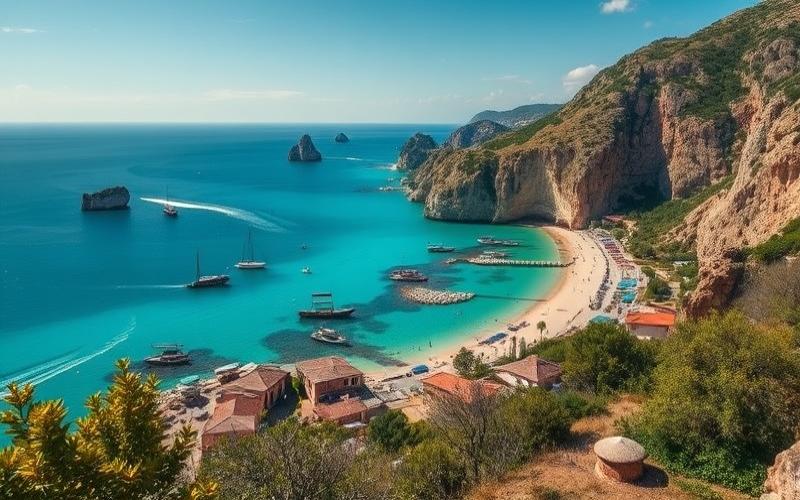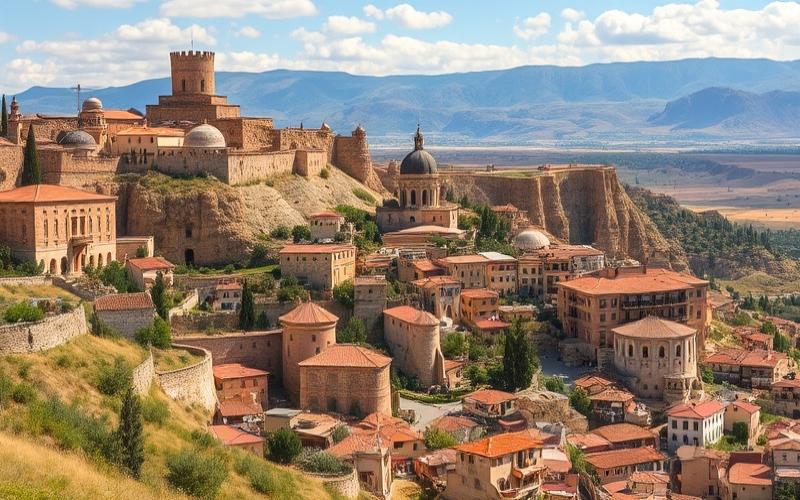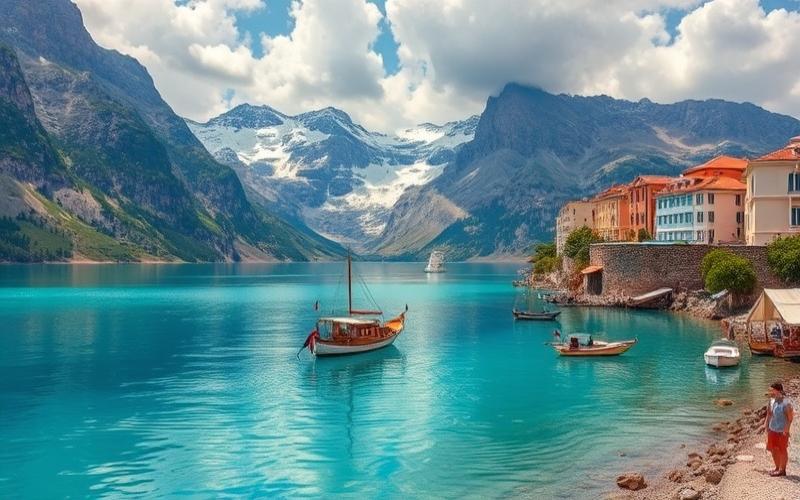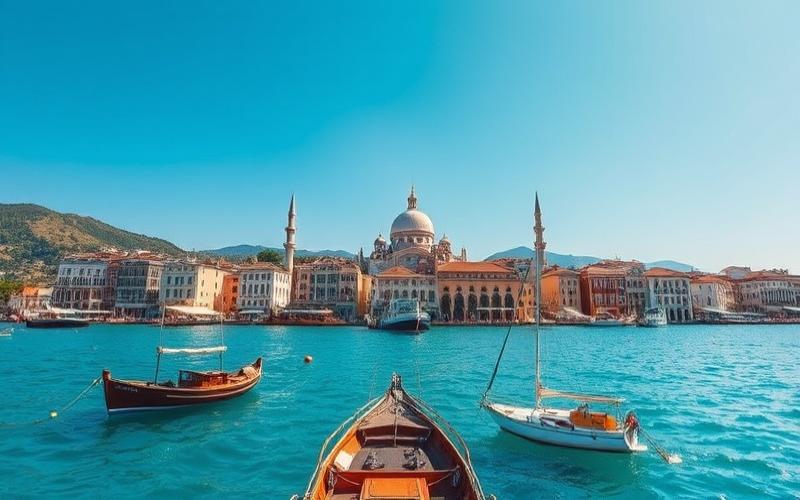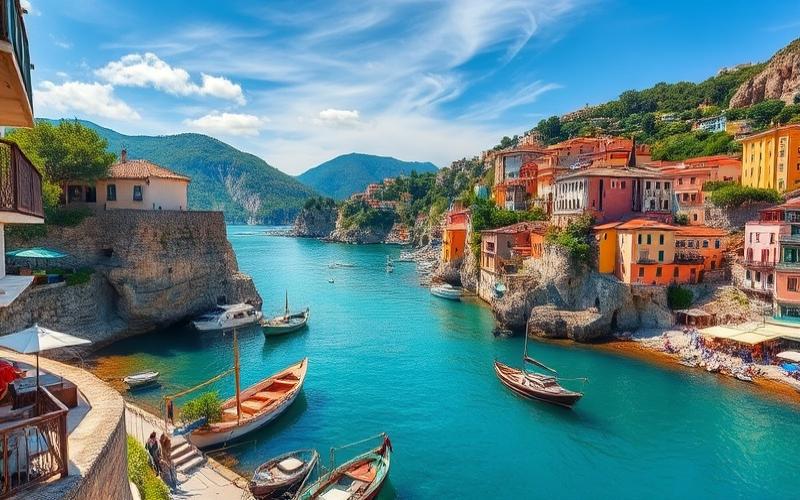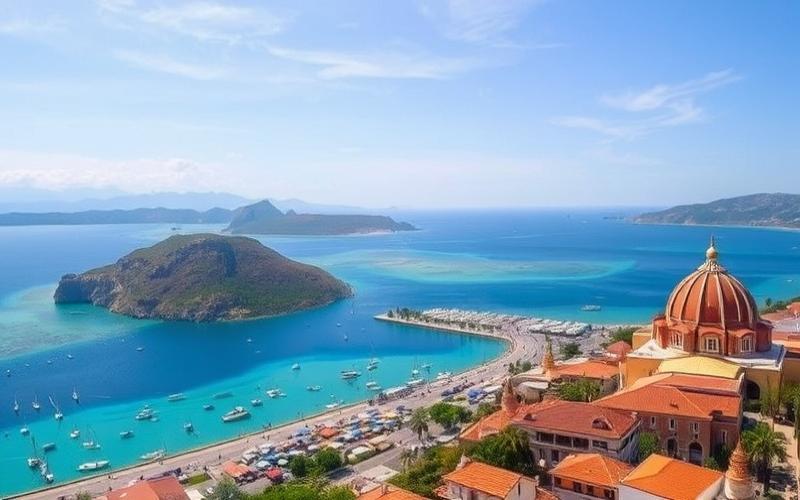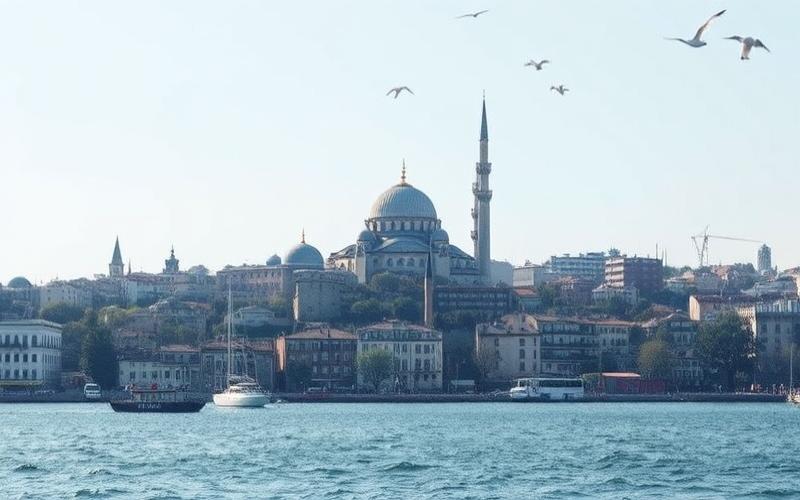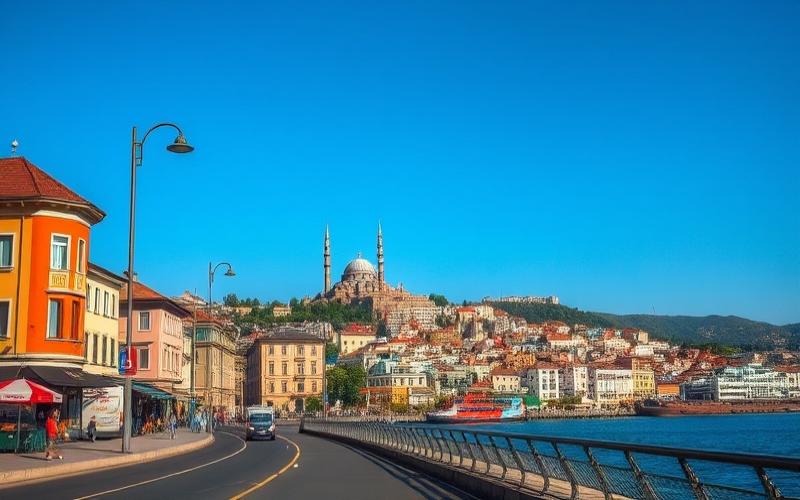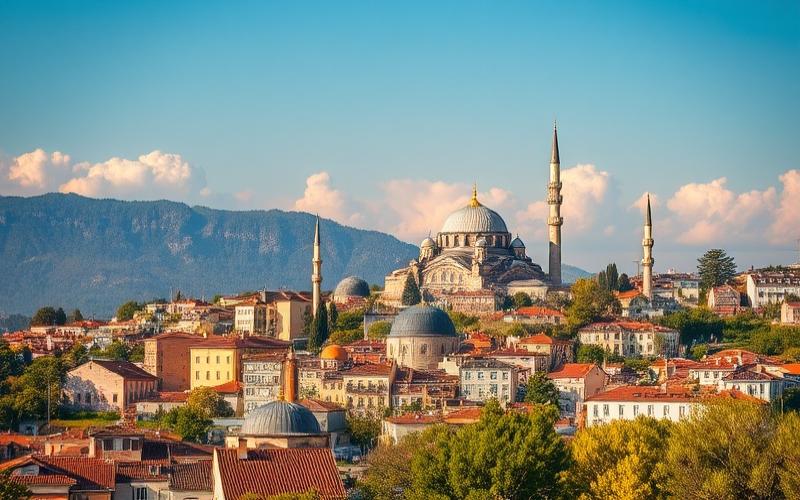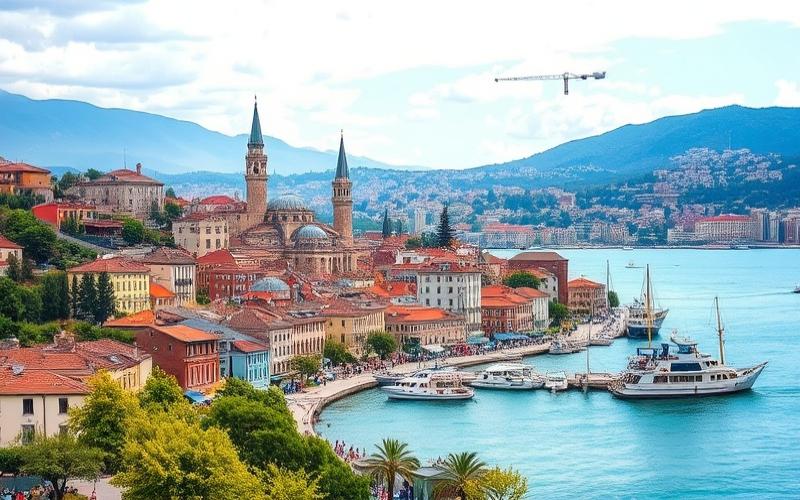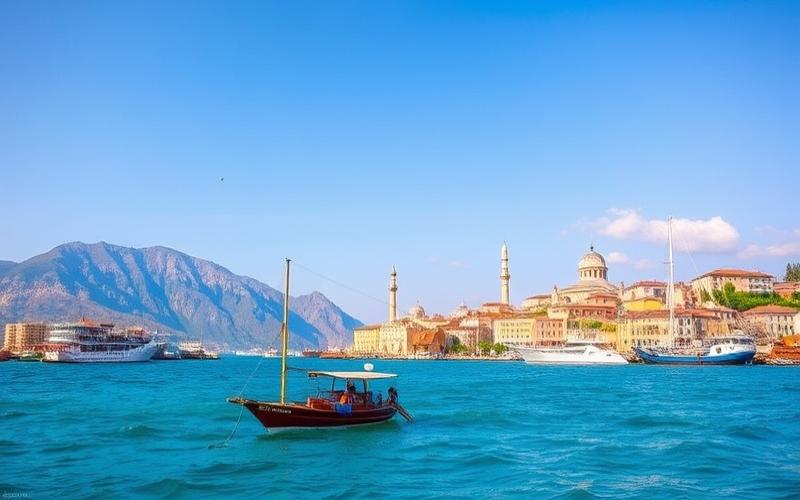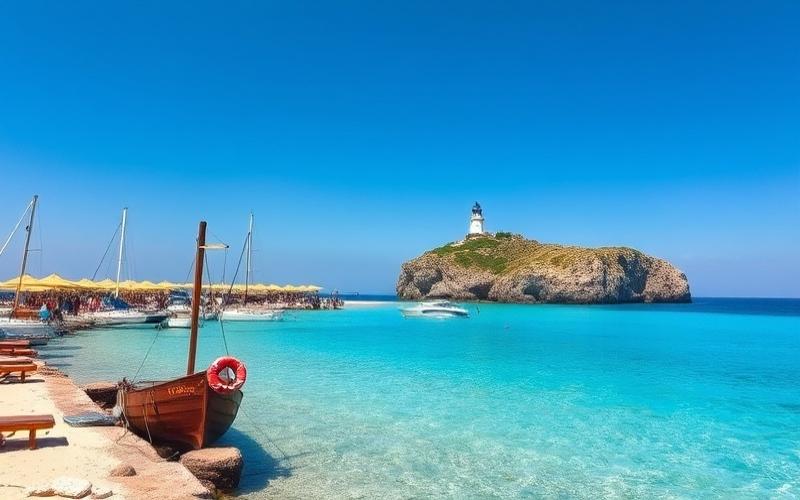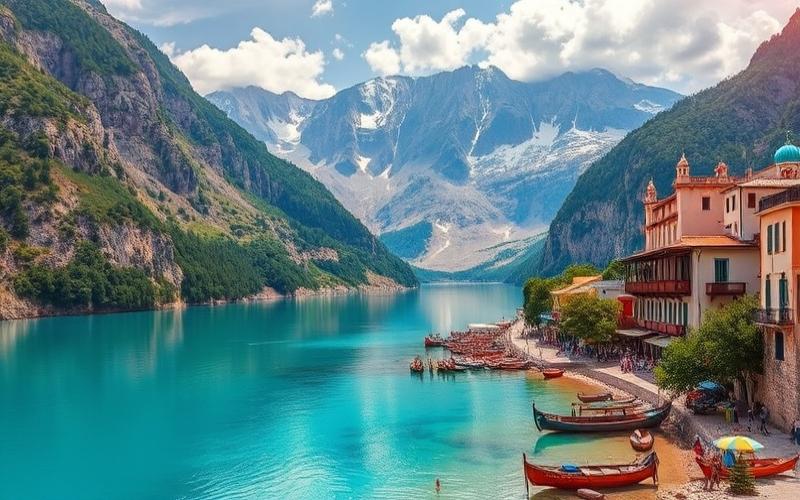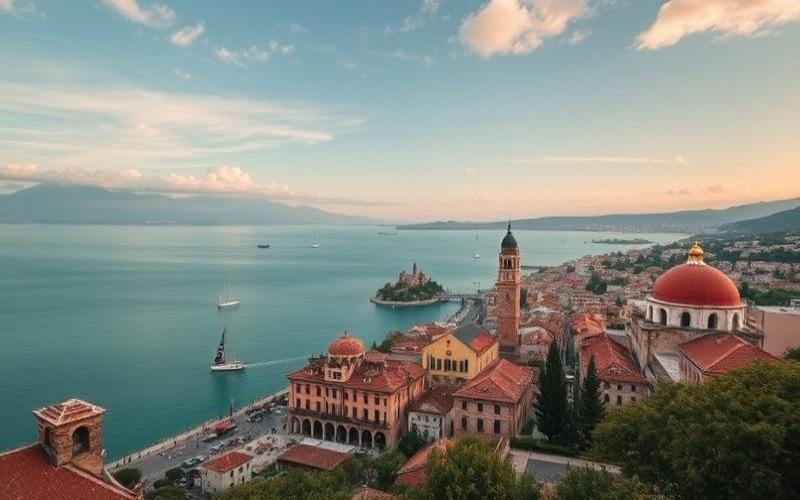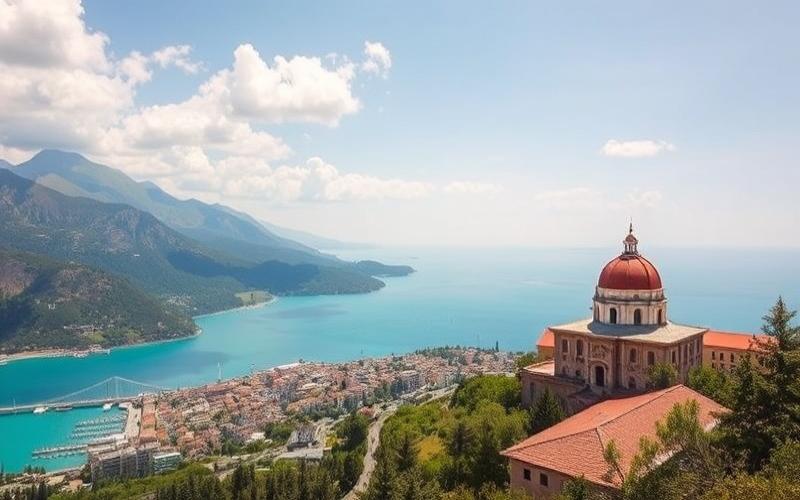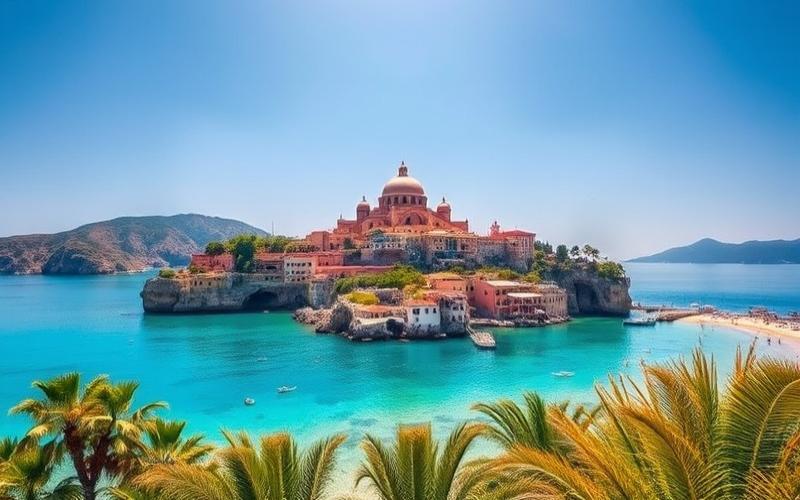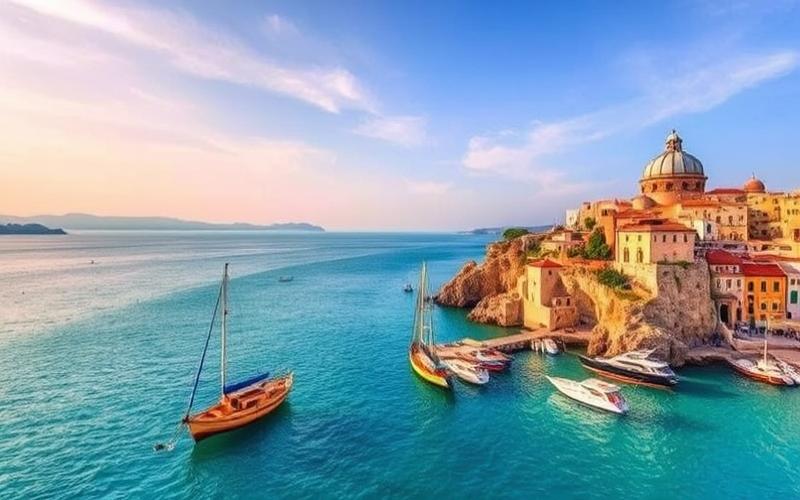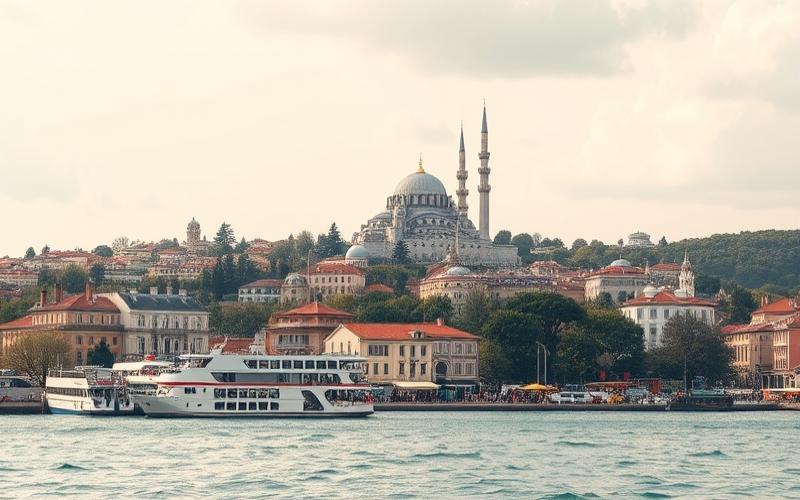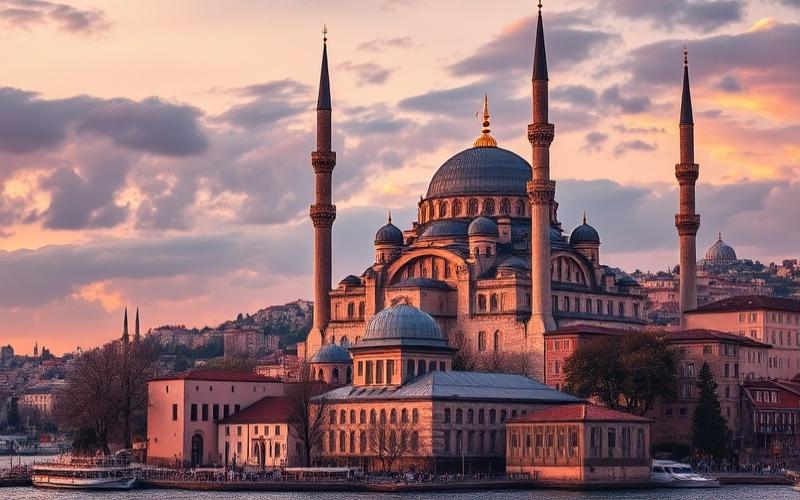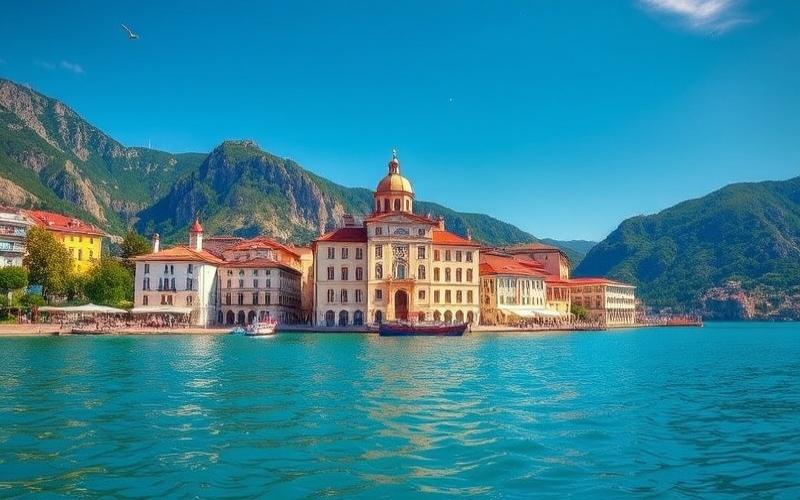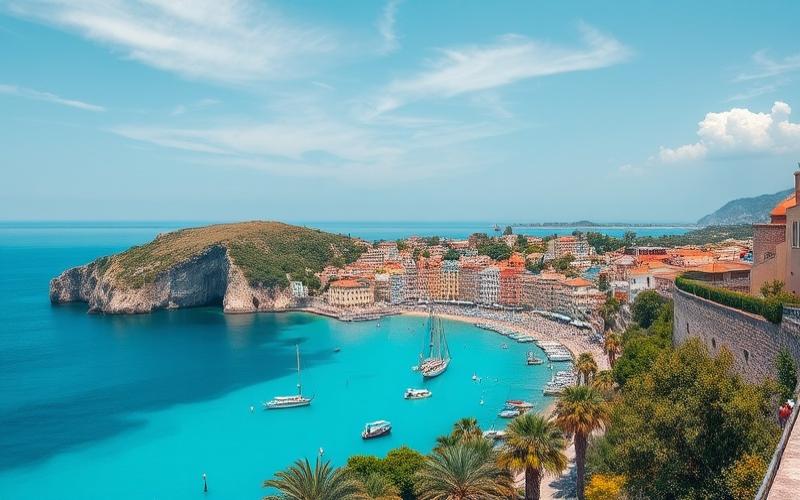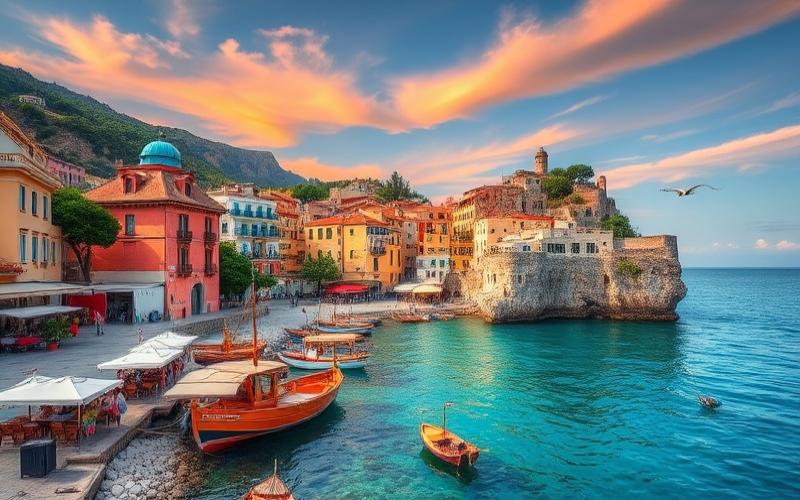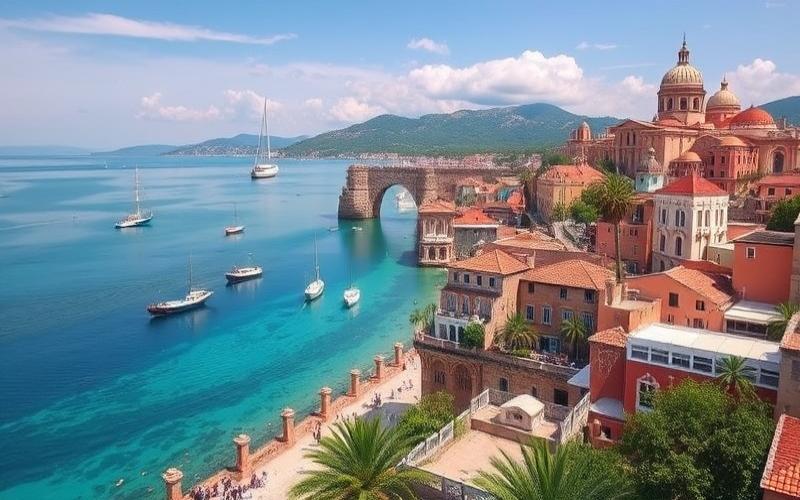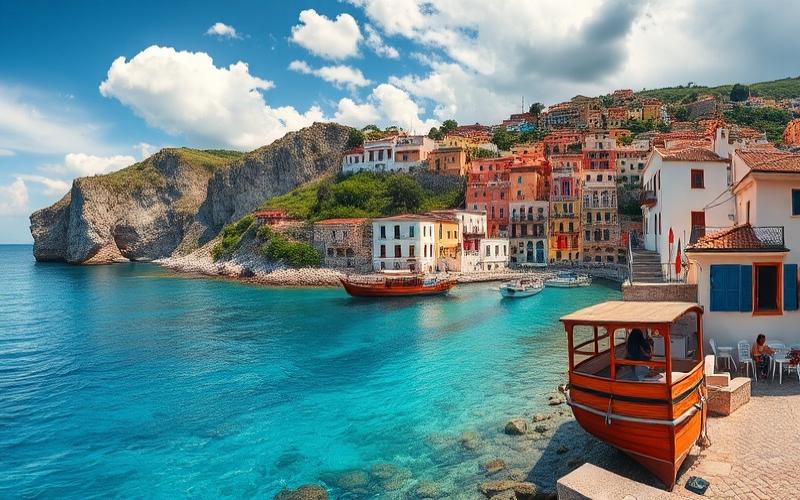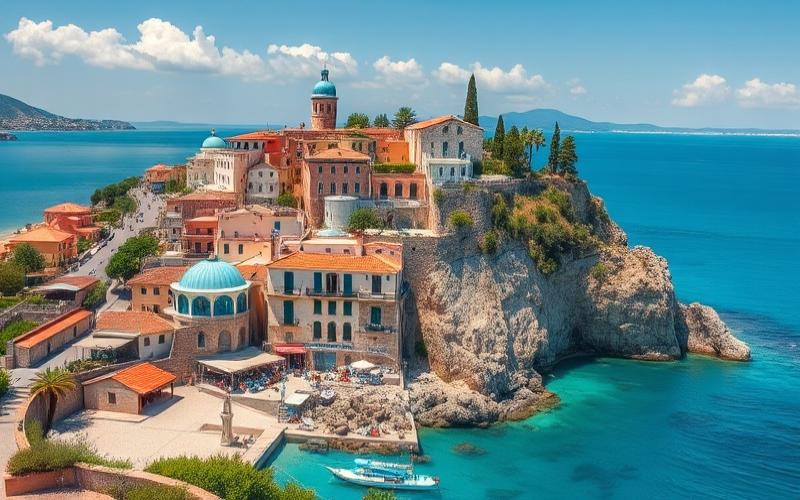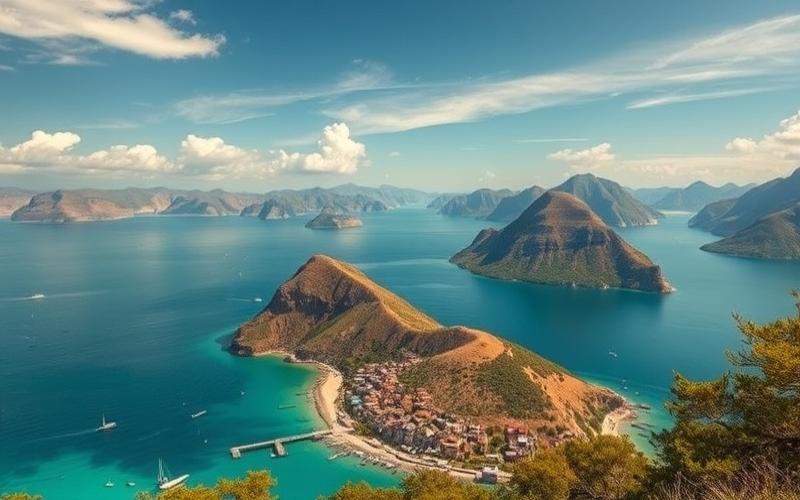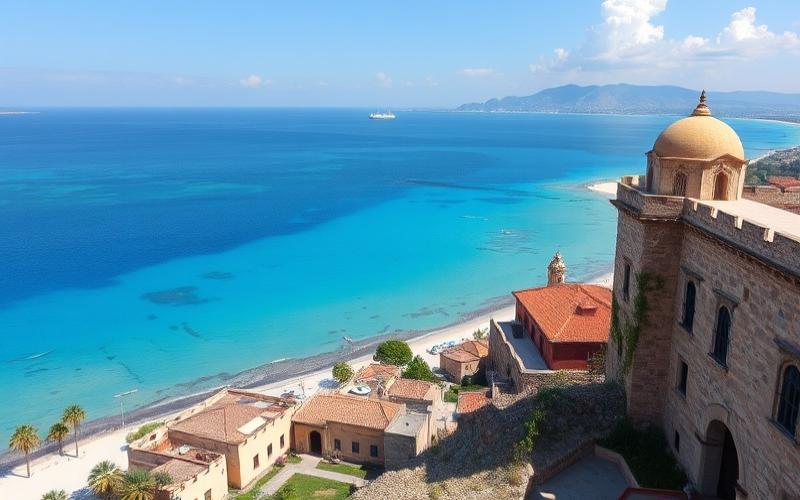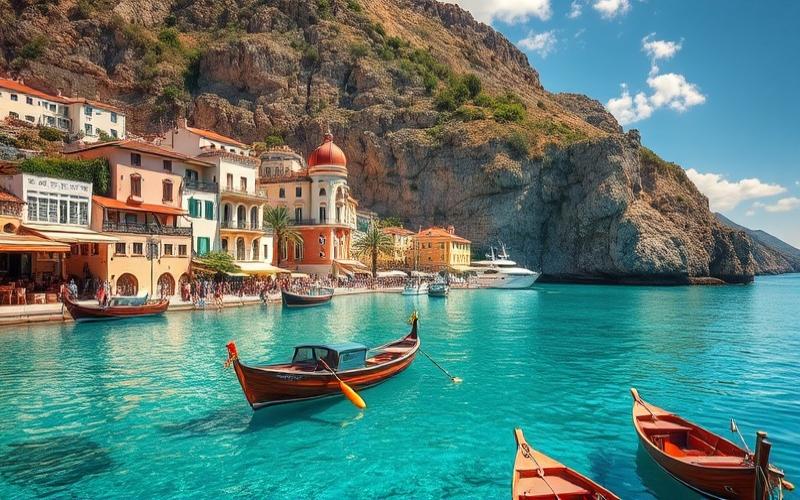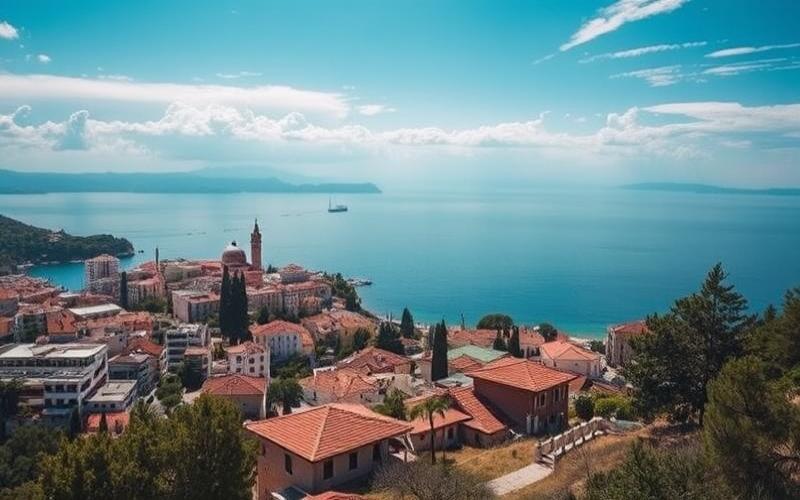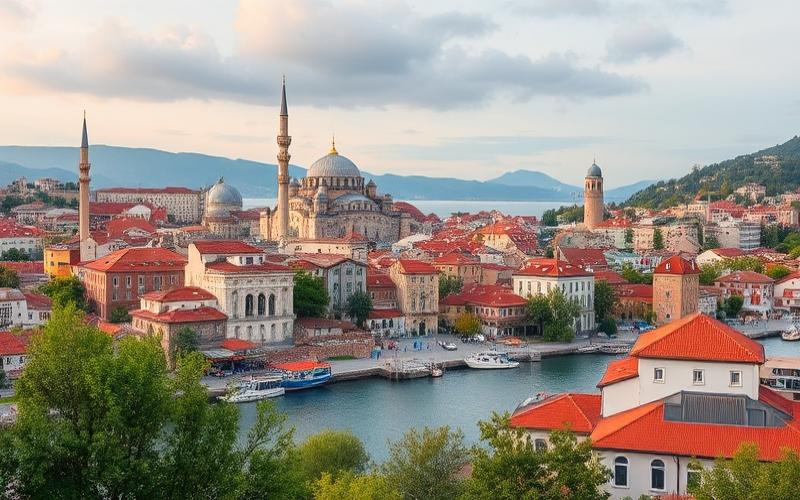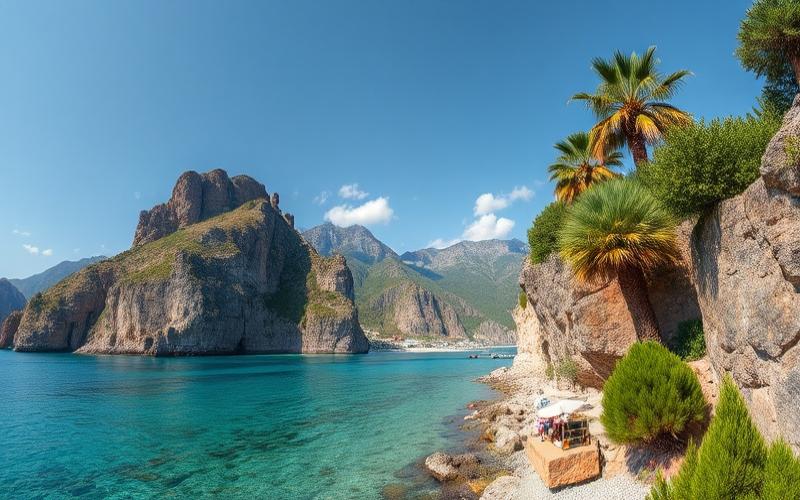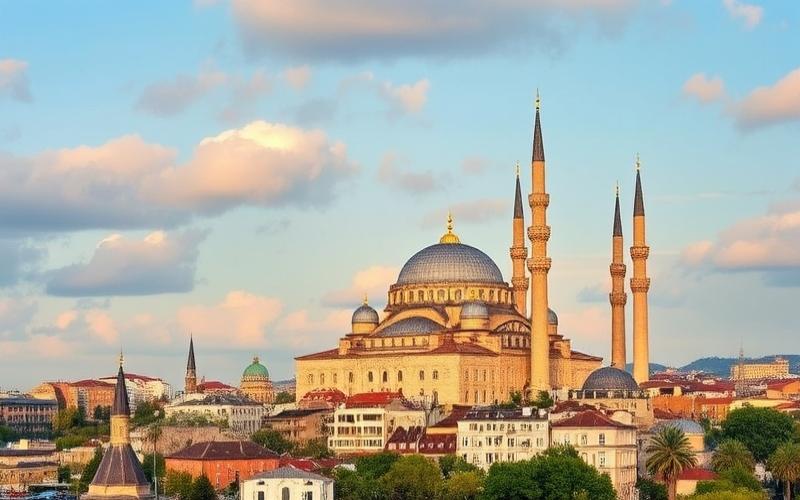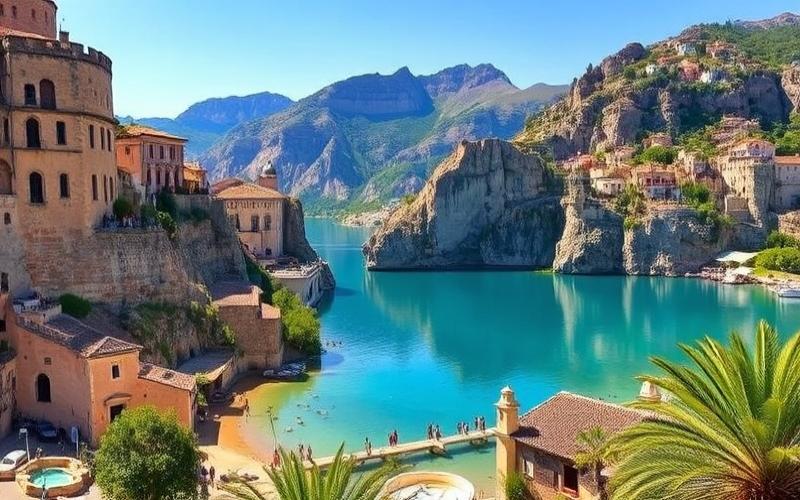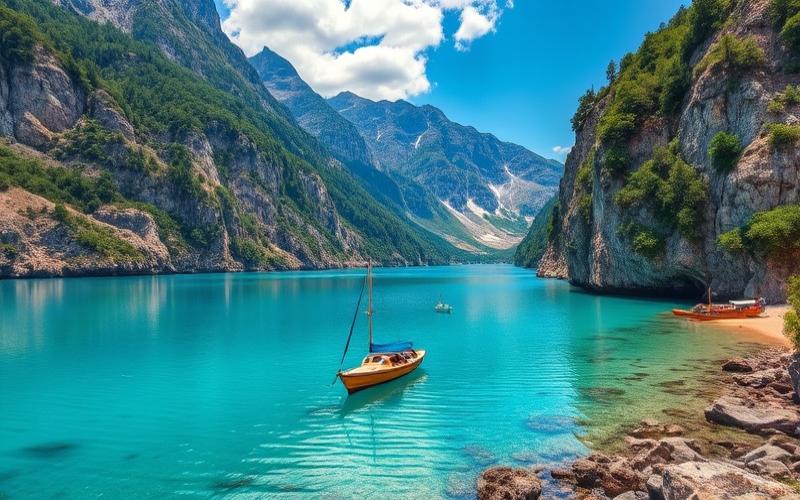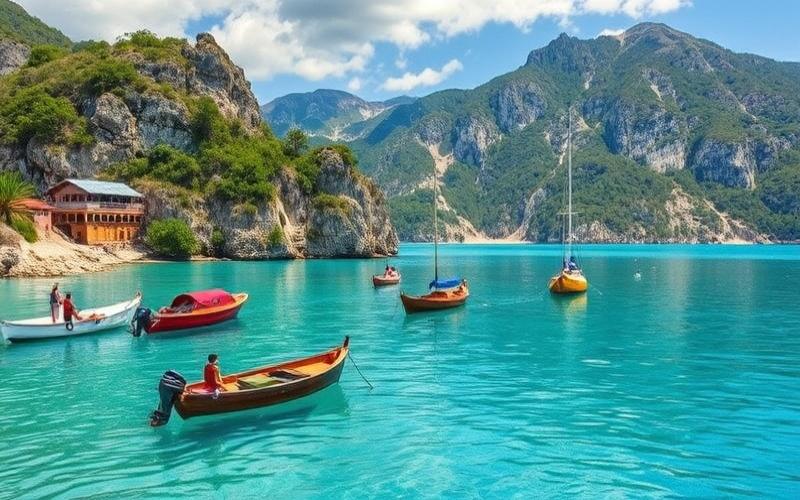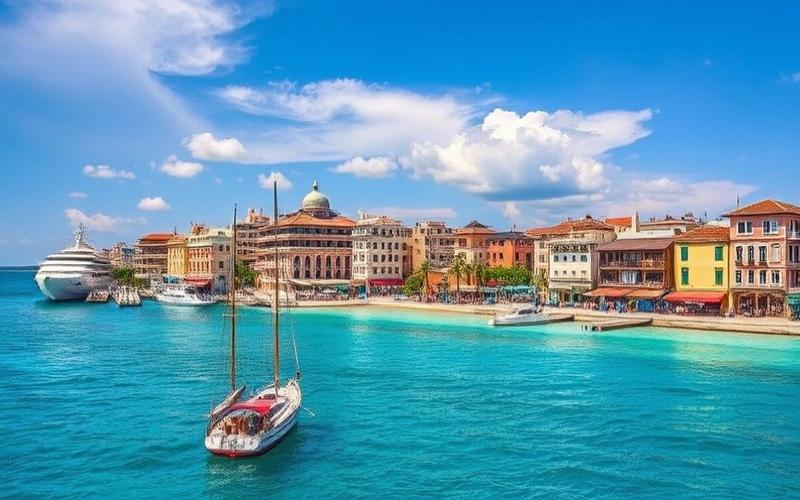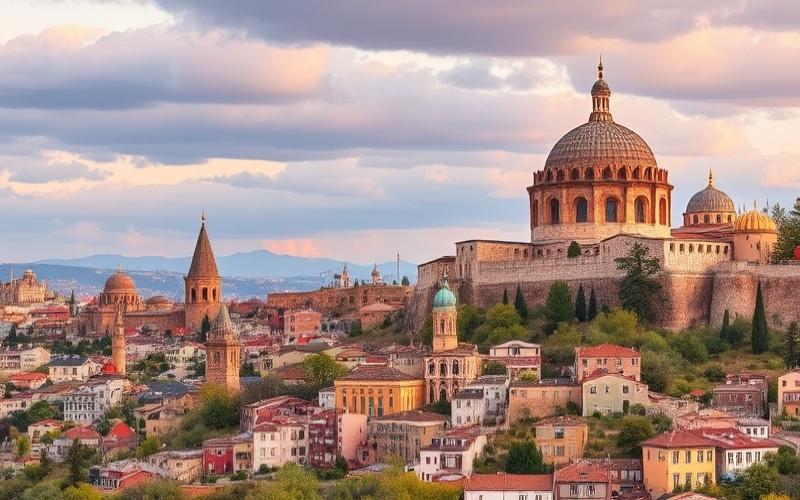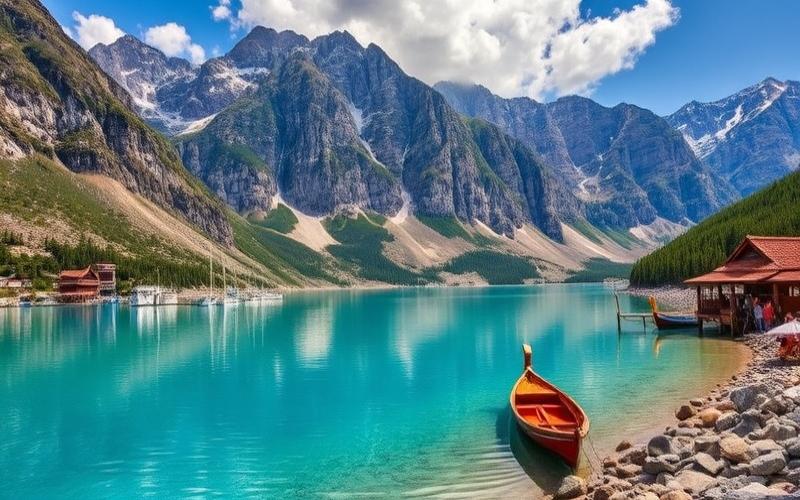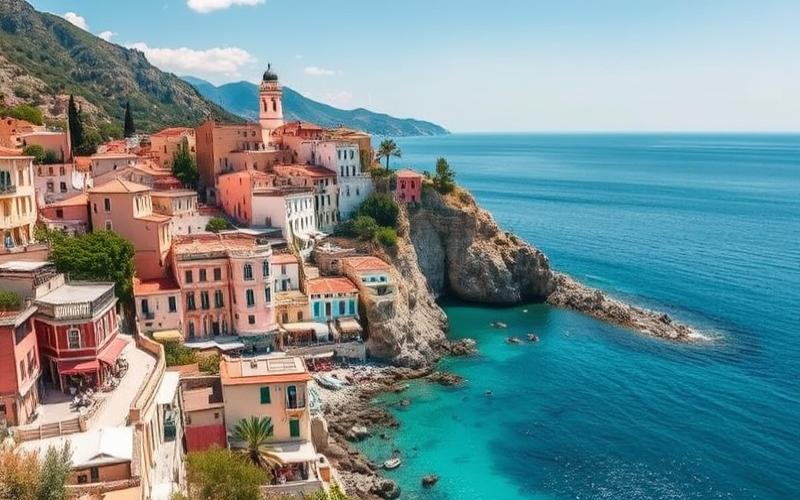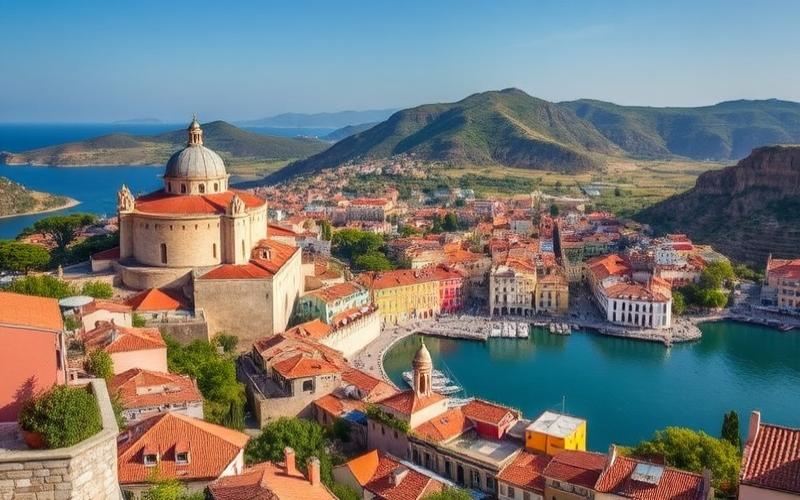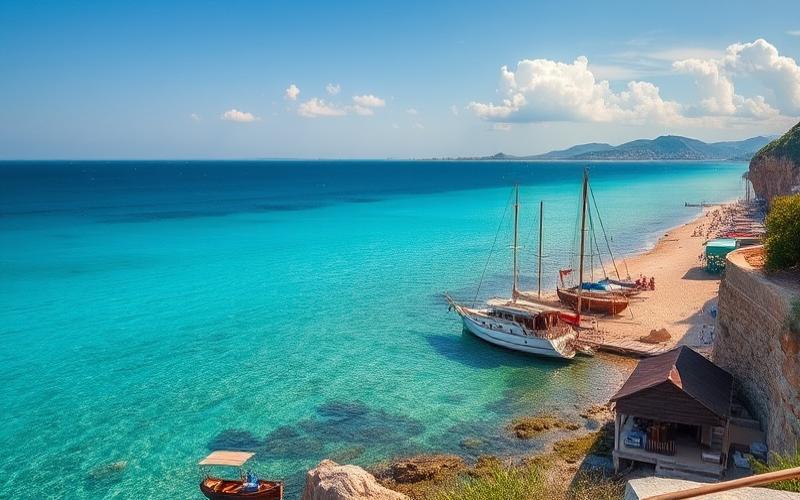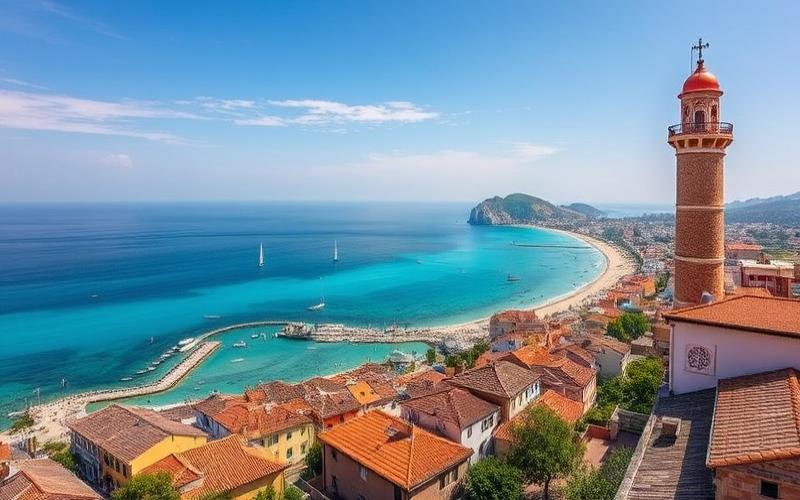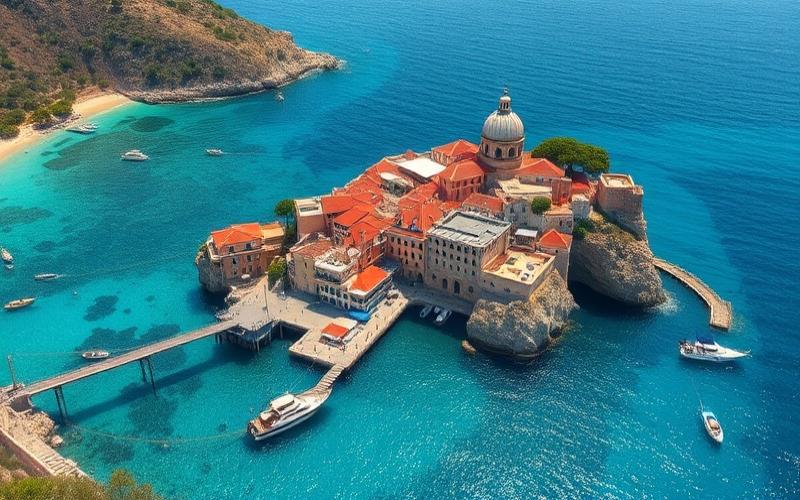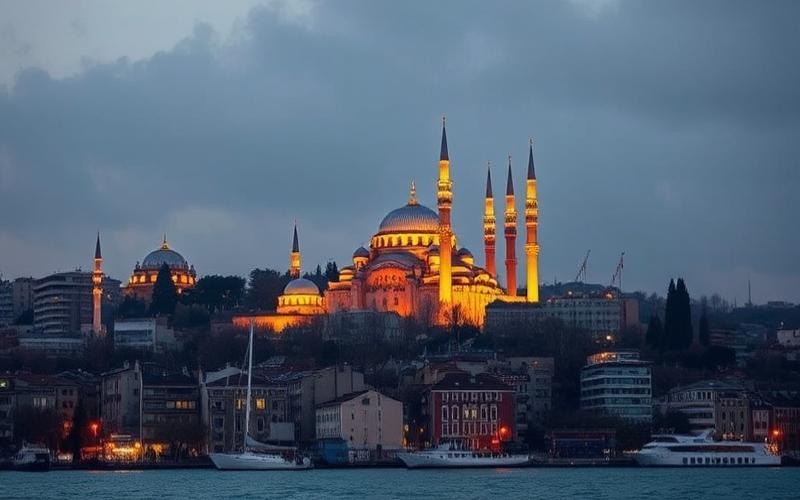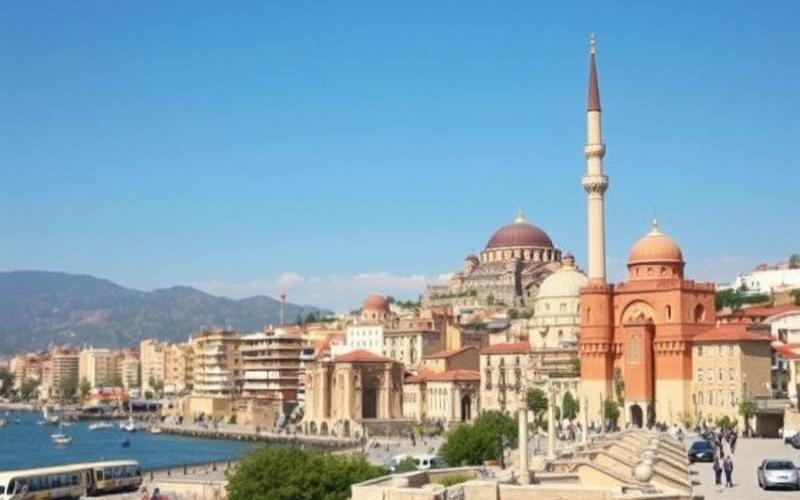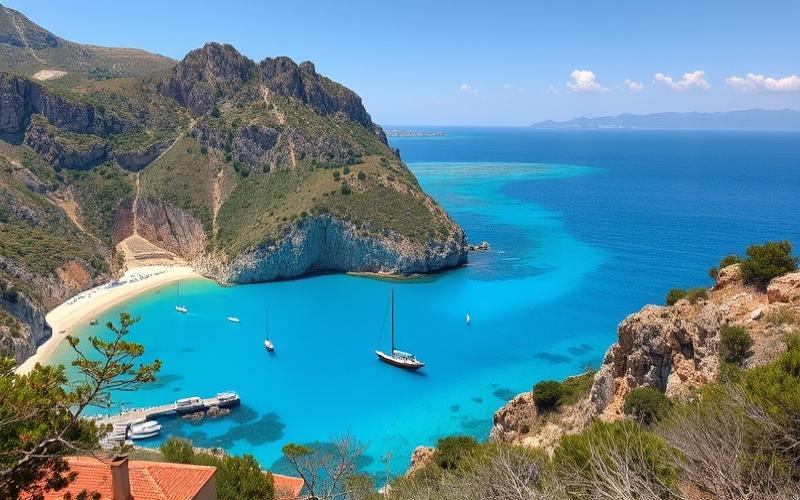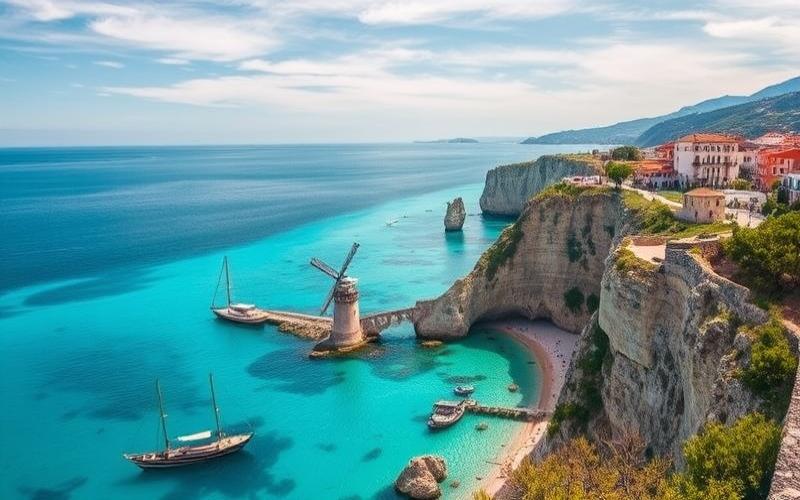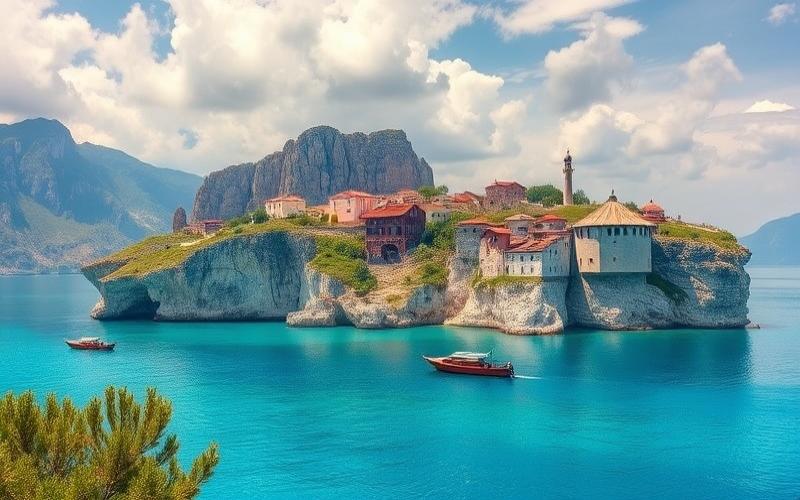
 Published on and written by Cyril Jarnias
Published on and written by Cyril Jarnias
Nestled at the crossroads of Europe and Asia, Turkey is a true treasure trove of cultural diversity, rich with unique festivals and centuries-old traditions. Ottoman, Greek, Persian, and Arab influences intertwine to form a vibrant and living cultural heritage that leaves no visitor indifferent.
From Konya’s Whirling Dervishes to Istanbul’s spectacular Tulip Festival, each event offers an immersive dive into the heart of the Turkish soul. While exploring this fascinating country, one discovers a mosaic of local customs where dance, music, and art serve as genuine bridges between past and present, inviting us to celebrate this nation’s exceptional cultural richness.
Discovering Turkey’s Major Festivals
Festivals in Turkey hold a central place in the country’s social and cultural life, providing Turks with opportunities to celebrate their heritage, strengthen family bonds, and welcome artistic diversity. These events mark the annual calendar and actively participate in transmitting traditions while opening up to the world.
Major Renowned Festivals:
- Istanbul Festival (Classical Arts)
- Held every summer, bringing together classical music, ballet, and opera.
- Showcases local and international artistic heritage.
- Attracts world-renowned artists and diverse audiences.
- Konya Dervish Dance Festival
- Dedicated to the mystic poet Rumi.
- Celebrates the spiritual Sema dance, symbolizing inner quest and spiritual elevation.
- Promotes intercultural dialogue around Sufism.
- Istanbul Tulip Festival
- Organized every April in major parks (Emirgan, Gülhane).
- Features over ten million tulips displayed throughout the city.
- Pays homage to Ottoman heritage where the tulip symbolized beauty and renewal.
- Antalya International Film Festival
- Major national cinematic event for several decades.
- Supports the Turkish film industry while promoting international works.
- Includes public screenings, workshops for young filmmakers, and prestigious award ceremonies.
Local Traditions Celebrated During These Festivals:
- Traditional art workshops: marbling (ebru), ceramics, pottery, or woodworking
- Regional folk dances with colorful costumes
- Concerts blending classical Ottoman music, jazz, or contemporary folk
- Local cuisine highlighted during festivities
Impact on Tourism:
Festivals play a major role in tourist appeal:
- They foster international cultural exchanges through globally open programming.
- Growing attendance allows both foreign and local visitors to explore Turkey’s historical riches.
- Events are planned annually to enable tourists to organize their stays around key dates.
| Festival | City | Period | Highlights |
|---|---|---|---|
| Istanbul Festival | Istanbul | Summer | Classical music, ballet/opera |
| Dervish Festival | Konya | December | Sufi Sema dance |
| Tulip Festival | Istanbul | April | Floral displays |
| Antalya Film Festival | Antalya | Fall | International cinema |
Lesser-Known But Significant Festivals:
- Nevruz (Spring Festival): celebrated throughout Turkey in late March; marks renewal through ritual fires and community meals.
- Cappadocia Balloon Festival: spectacular aerial gatherings above Cappadocia’s lunar landscapes.
- Regional folk festivals (halk oyunları) highlighting traditional songs and local folk arts.
These events all contribute to illustrating Turkey’s cultural richness while affirming its diversity in the face of the modern world.
Good to Know:
Turkey, rich in cultural diversity, celebrates its traditions through numerous festivals that play a crucial role in the country’s social and cultural life. The Istanbul Festival, held every summer, highlights classical arts and music, bringing together locals and tourists in a lively atmosphere. In Konya, the Dervish Dance Festival is dedicated to the memory of poet Rumi, offering a unique spiritual experience through the mystical performances of Sufi dancers. The famous Istanbul Tulip Festival attracts flower lovers to admire the dazzling diversity of tulips adorning the city. The Antalya International Film Festival, meanwhile, is a prestigious platform for Turkish cinema, fostering cultural exchange and attracting filmmakers from around the world. During these events, local traditions are highlighted, promoting tourism and the economy while preserving cultural heritage. Other lesser-known festivals, such as harvest celebrations or regional festivities, also contribute to Turkey’s cultural mosaic, enriching its diversity and offering visitors an authentic immersion into local culture.
Turkish Traditions at the Heart of Cultural Life
Traditional customs and practices remain very present in daily Turkish life. Hospitality holds a central place: offering Turkish tea or coffee to guests is an almost sacred gesture, symbolizing welcome and respect. Respect for elders manifests in social interactions, particularly during greetings and family gatherings. Traditional arts like carpet making, pottery, calligraphy, and marbling testify to craftsmanship passed down through generations.
Major Holidays and Celebrations
| Holiday/Celebration | Description and Essential Rituals |
|---|---|
| Ramadan (Ramazan) | Sacred month of fasting; concludes with Şeker Bayramı (Sugar Festival), marked by prayer, sharing sweets, and family visits. |
| Kurban Bayramı | Festival of Sacrifice, commemorating Ibrahim’s act; family gatherings, collective prayers, donations to the needy, and meat sharing. |
| Nevruz | Turkish New Year (March 21), celebrated especially in Eastern and Southeastern regions: bonfires, dances, songs, purification rituals, and community meals. |
| Traditional Weddings | Ceremonies marked by rituals: henna, wedding procession, folk dances, and festive meals uniting the entire village or neighborhood. |
Music, Dance, and Cuisine
- Traditional Music: Iconic instruments like the oud, saz, or darbuka accompany songs and dances during holidays and gatherings.
- Folk Dances: Each region has its own dances, including halay (chain dances from Anatolia), zeybek (slow and majestic Aegean dance), or horon (fast Black Sea dance).
- Cuisine: Regional diversity is remarkable. Specialties include kebab, börek, baklava, and dishes based on eggplant and yogurt. Local markets abound with spices and regional products.
Regional Customs
| Region | Specific Traditions |
|---|---|
| Central Anatolia | Halay dances, coffee ceremonies, carpet craftsmanship |
| Aegean Region | Zeybek, olive oil-based cuisine, tulip festivals |
| Black Sea | Horon, colorful costumes, tea harvest celebrations |
| Southeastern Anatolia | Nevruz rituals, Kurdish music, spicy specialties |
Transmission of Traditions and Modernization
- Family Transmission: Values, rituals, and skills are passed down during major occasions and daily life, particularly by women in the family.
- Cultural Festivals: Events like the Türkiye Culture Route Festival highlight the richness of local traditions through performances, workshops, and tastings.
- Western Influence: Urbanization and media promote more modern lifestyles, but many families strive to maintain customs, sometimes adapting them to contemporary realities.
Turkish traditions, constantly evolving, continue to animate cultural life, forming a living bridge between past and present, and a source of shared pride across all generations.
Good to Know:
In Turkey, cultural traditions continue to adorn daily life with holidays like Ramadan, marking a month of fasting and conviviality, or Nevruz, celebrating the Turkish New Year symbolizing spring renewal. Weddings are filled with ancient rites where music and folk dances such as Halay or Zeybek reflect regional cultural richness. Culinary diversity manifests through iconic dishes like kebab and baklava, highlighting the importance of gastronomy. Each region of the country has its own customs, from the festive joy of village celebrations to the legendary hospitality that unites residents. Although Western influence and modernization progress, these traditions are carefully preserved and transmitted through community and family attachment, ensuring their survival for new generations.
An Unforgettable Immersion in the Turkish Cultural Experience
Immersion in Turkish culture is experienced through unique festivals, living traditions, and a world-renowned art of hospitality.
Iconic Festivals:
| Festival | Location | Period | Description |
|---|---|---|---|
| Istanbul International Music Festival | Istanbul | June-July | Brings world-renowned artists to historic venues. Concerts, performances, and meetings. |
| Efes Festival | Near Izmir | Summer | Celebrates ancient heritage with performances in the Roman theater, blending classical music and opera. |
| Kirkpinar Festival | Edirne | June | World’s oldest oil wrestling tournament (600 years). Ceremony, music, cuisine, and festive atmosphere. |
| Whirling Dervishes Festival | Konya | December | Commemorates poet Rumi. Sufi dance performances, mystical and spiritual experience. |
| Istanbul Jazz Festival | Istanbul | July | Contemporary jazz and world music in a cosmopolitan atmosphere. |
| Cappadocia Balloon Festival | Cappadocia | July | Hot air balloon flights at dawn, artisan activities, and local tastings on the ground. |
Must-Experience Local Traditions:
- Wedding Ceremonies: Family rituals, folk music and dances, henna, traditional costumes, sharing typical dishes. Festivities can last several days and often unite entire villages.
- Family Dinners: Sacred moments where hospitality translates into abundant dishes and warm atmosphere. Meals begin with mezzes, followed by stewed dishes, and conclude with tea or coffee.
- Turkish Etiquette: Respect for elders, generosity toward guests, and importance of sharing. It’s customary to offer the best to visitors, even during impromptu encounters.
Turkish Hospitality:
- Always offer drinks or food to visitors, even unexpected ones.
- Spontaneously invite to share a meal, tea, or homemade dessert.
- Accompany guests to the door and ensure their comfort throughout the visit.
Role of Turkish Tea and Coffee in Social Encounters:
- Turkish Tea is omnipresent: served in small tulip-shaped glasses, it accompanies every discussion, negotiation, or break. Accepting tea means accepting exchange and hospitality.
- Turkish Coffee, strong and prepared using ancestral methods, is served after meals. It symbolizes the art of taking time and is often accompanied by fortune telling from coffee grounds, serving as a pretext for conviviality.
Traveler Anecdotes and Testimonials:
“In Edirne, during the Kirkpinar festival, I was invited by a family to share their picnic. Even without speaking Turkish, we laughed, enjoyed börek, and cheered the wrestlers together.”
“In a small Anatolian village, I attended a wedding ceremony: women in vibrant outfits, rhythms of davul and zurna, and tables overflowing with dishes. I was served tea all evening, a sign I was fully accepted.”
“In Istanbul, a shopkeeper offered me tea while I was walking through the Grand Bazaar. We talked about our respective families, proof that human warmth is at the heart of Turkish culture.”
The Turkish cultural experience is a sensory and emotional journey, punctuated by celebrations, traditions, and gestures of hospitality that leave a lasting impression on visitors’ hearts.
Good to Know:
The Istanbul International Music Festival enchants enthusiasts with its open-air concerts, offering a vibrant fusion between traditional and contemporary music, while the Efes Festival celebrates the ancient history of Ephesus through captivating theatrical performances. Don’t miss the Kirkpinar Festival, where wrestlers coat themselves in olive oil for a captivating traditional wrestling spectacle. Turkish weddings are true community celebrations, illustrating the importance of family, while dinners often featuring dishes like meze or pilav strengthen social bonds and highlight local savoir-vivre. Turkish hospitality is legendary, with residents quick to offer you a glass of tea during moments of conviviality, which, along with traditional Turkish coffee, rhythm social exchanges. Travelers testify to the warm welcome that leaves a lasting impression, like Emily from Canada, amazed by locals’ generosity during her stay. Integrating these traditions into your visit will allow you to fully experience the essence of Turkey.
Disclaimer: The information provided on this website is for informational purposes only and does not constitute financial, legal, or professional advice. We encourage you to consult qualified experts before making any investment, real estate, or expatriation decisions. Although we strive to maintain up-to-date and accurate information, we do not guarantee the completeness, accuracy, or timeliness of the proposed content. As investment and expatriation involve risks, we disclaim any liability for potential losses or damages arising from the use of this site. Your use of this site confirms your acceptance of these terms and your understanding of the associated risks.


